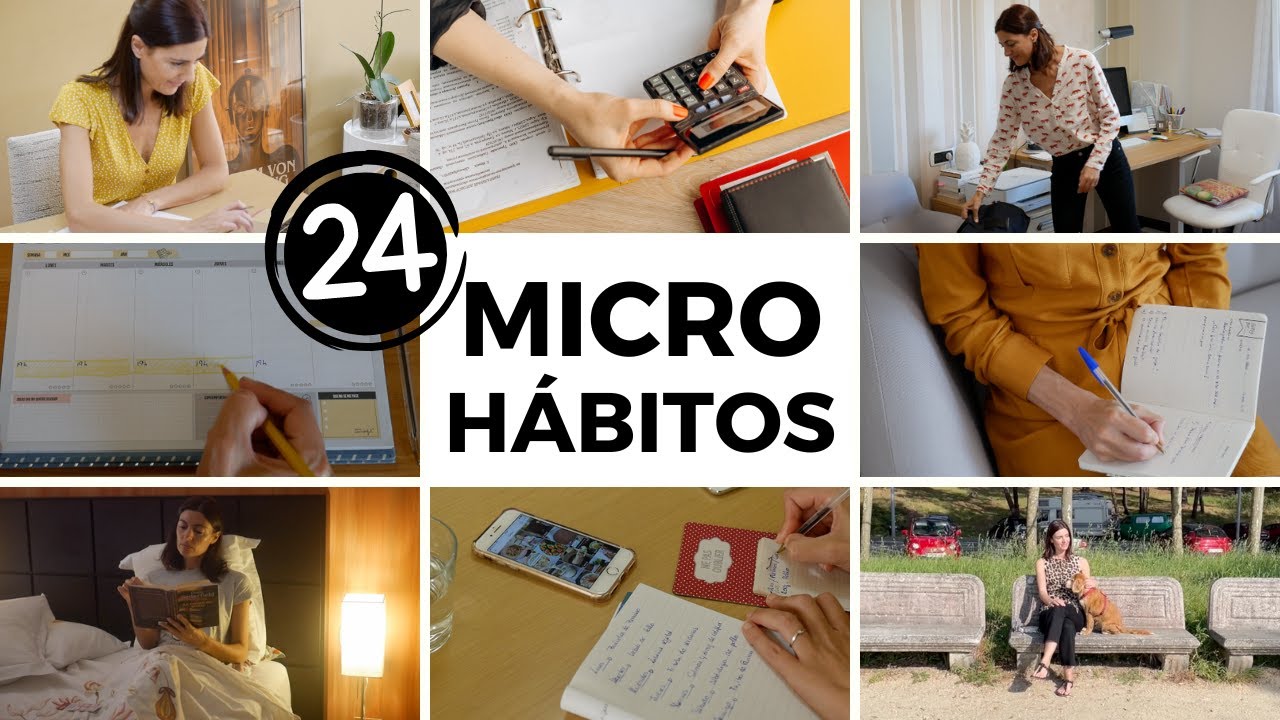How waking up every day at 4.30am can change your life | Filipe Castro Matos | TEDxAUBG
Summary
TLDRThe speaker advocates for 'going beyond natural' by challenging personal limits and embracing small yet impactful changes in life. He shares his personal experience with the #21earlydays challenge, waking up at 4:30 am for 21 days, which unexpectedly gained widespread attention and inspired a global conversation on productivity and life improvement. His story illustrates the butterfly effect, where small actions can lead to significant outcomes, encouraging everyone to think differently and strive for growth and happiness.
Takeaways
- 🚀 Pushing beyond your comfort zone can lead to achieving things you've never imagined before.
- 🌟 Small, consistent actions can accumulate to create significant life changes and accomplishments.
- 🎯 Being ambitious and patient are key to achieving long-term goals, which may take years of hard work and a bit of luck.
- 📅 The #21earlydays challenge is an example of a small act that led to widespread influence and personal growth.
- 🌞 Waking up at 4:30 am challenged societal norms and personal habits, sparking a global conversation.
- 🤝 Finding support and accountability can be crucial in maintaining motivation and achieving goals.
- 👀 People are drawn to uniqueness and are interested in seeing different approaches to life.
- 🛌 Quality sleep and a healthy lifestyle are essential for waking up early without feeling tired.
- 🛑 Eliminating obstacles can make it easier to adopt new habits and achieve goals.
- ⏰ Waking up early provides additional time for work, exercise, and personal enjoyment.
- 🌅 Experiencing the world at a different time of day, like witnessing a sunrise, can offer new pleasures.
- 💪 Having the will to change is the most important factor; with it, no one can stop you from achieving your goals.
Q & A
What is the core message of the speaker in the script?
-The core message is to 'go beyond natural' by pushing personal limits, being ambitious yet patient, and recognizing that small, consistent actions can lead to significant life changes and achievements.
What challenge did the speaker undertake and why?
-The speaker undertook the #21earlydays challenge, waking up at 4:30 am for 21 consecutive days, to test the idea that successful people wake up early and to form a new habit, based on theories that it takes 21 days to establish one.
Why did the speaker believe that waking up early could lead to significant outcomes?
-The speaker believed that waking up early could provide more working hours, improve productivity, and lead to a healthier lifestyle, which in turn could have a positive impact on one's overall life.
What was the unexpected outcome of the speaker's #21earlydays challenge?
-The unexpected outcome was the widespread attention and engagement the challenge received, including features on Business Insider, national TV, newspapers, and radio, as well as inspiring many people to adopt the habit of waking up early.
How did the speaker's early rising challenge affect others?
-The challenge inspired a global conversation and participation, with many people around the world starting to wake up earlier, sharing their experiences, and reporting increased happiness as a result.
What are some of the benefits the speaker experienced from waking up early?
-The benefits include having more working time, being able to answer emails and messages with an Inbox zero, having more time at the gym, and enjoying the pleasure of seeing sunrises during morning runs.
What advice does the speaker give regarding the snooze button on an alarm clock?
-The speaker advises to forget the snooze button, considering it one of the worst inventions because it delays起床, makes one more tired, and wastes time that could be used for more interesting activities.
How does the speaker emphasize the importance of a healthy lifestyle in relation to their early rising challenge?
-The speaker emphasizes that a healthy lifestyle, including good sleep, proper diet, and regular exercise, is crucial for being able to wake up early without feeling tired and for maintaining the habit in the long term.
What lesson did the speaker learn about the power of small, consistent actions?
-The speaker learned that small, consistent actions, like waking up early, can accumulate to create significant changes over time, potentially leading to large differences in one's life, similar to the butterfly effect.
What was the speaker's final message to the audience?
-The final message was to encourage the audience to 'go beyond natural and think different,' emphasizing that every little thing done daily could lead to big, surprising outcomes in the future, resulting in personal growth, improvement, and happiness.
Outlines

هذا القسم متوفر فقط للمشتركين. يرجى الترقية للوصول إلى هذه الميزة.
قم بالترقية الآنMindmap

هذا القسم متوفر فقط للمشتركين. يرجى الترقية للوصول إلى هذه الميزة.
قم بالترقية الآنKeywords

هذا القسم متوفر فقط للمشتركين. يرجى الترقية للوصول إلى هذه الميزة.
قم بالترقية الآنHighlights

هذا القسم متوفر فقط للمشتركين. يرجى الترقية للوصول إلى هذه الميزة.
قم بالترقية الآنTranscripts

هذا القسم متوفر فقط للمشتركين. يرجى الترقية للوصول إلى هذه الميزة.
قم بالترقية الآنتصفح المزيد من مقاطع الفيديو ذات الصلة

24 Mini Hábitos fáciles que cambiarán tu vida este 2024

10 Habits I Wish I Started 10 Years Ago

The psychology of self-motivation | Scott Geller | TEDxVirginiaTech

Both Not Half: How language shapes identity | Jassa Ahluwalia | TEDxChandigarh

İradeni Geliştirmek İçin 10 Teknik

Training Philosophy: Training vs Adaptation
5.0 / 5 (0 votes)
